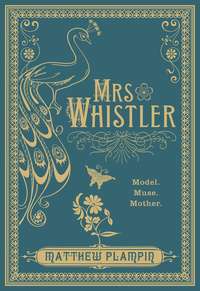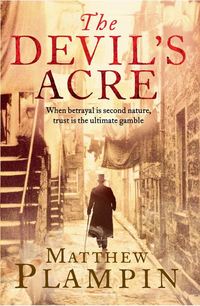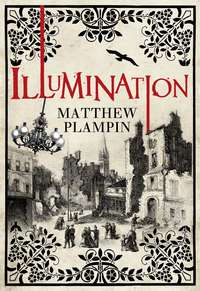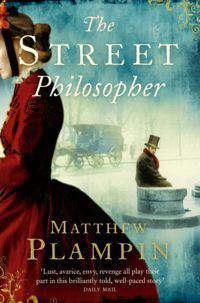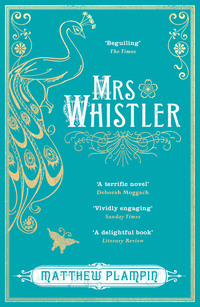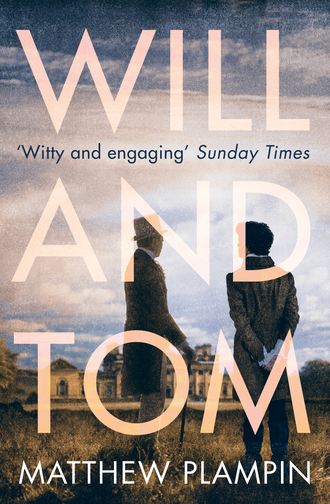
Полная версия
Will & Tom
Beau is blinking, amazed, as if he is entirely unused to being addressed in such a direct fashion. It is an act, deliberately unconvincing. ‘Well, of course, Mr Turner. I suppose we have not … I mean to say, I am aware that we—’
Mr Cope intervenes. ‘Mr Lascelles desires four views of the house, two close and two distant – you may select the orientation – and two other subjects of your choice, taken from the estate. For these six drawings, delivered in a complete condition to Lord Harewood’s residence on Hanover Square, he will pay you sixty guineas.’
Will pauses, then nods; it’s a solid contract, half the winter’s work right there, not to mention the valuable additions he might make to his sketchbooks in the valley and woods around the house. But things still don’t seem right. He’s being dispensed with. This is not the manner in which commissions should be made – laid out by a businesslike valet whilst his lord sways in the background.
Now, though, Beau is walking towards him with disconcerting purpose. ‘There are your terms, my solemn young sir,’ he proclaims. ‘I trust that they are to your satisfaction.’
He seizes Will’s hand, as if to seal their agreement with a shake – but instead turns it in both of his, examining it closely. Will stiffens, acutely aware of the sweetmeat still stuck to his palm. Beau makes no comment, brushing the ruby-red stub onto the carpet; then he isolates the thumb and holds it up for his valet’s inspection. Will is dragged to Beau’s side – pressed against the damp, voluminous shirt and the slippery flab beneath.
‘See here, Jim, look at that nail! A proper talon it is! Why, the damn thing must be half an inch long. The scraper, I believe they call it. Distinguishes the true watercolour man, the true artist, from the mere dabbler.’
Released abruptly, Will stumbles and almost falls to the floor. He regains his balance to find the two men contemplating him. Mr Cope is inscrutable, a towering silhouette in the bright dining room doorway; while Beau stands beside him in a boozy contrapposto, one hand on his hip, that oversized, florid face split by a sardonic grin.
‘Did I not say that our Mr Turner was the genuine article?.
*
Two days at most, thinks Will, hopping from the bottom step back onto the service floor. Two days to sketch this pile, and some bridge or lake in the vicinity, and I’ll be gone. The fat villain can rot out here with his fine French china and troublesome sister and idiot idler friends – and that unaccountable valet, that Jim, stuck barnacle-like to his master’s bloated hull. Their crude efforts to intimidate him, to humble him, won’t be successful. He vows it.
A cockney project indeed! The genuine article! Will suddenly wants to break something, to kick in that door panel, to rip the buttons from his new brown jacket and send them skittering down the corridor. But instead he stops; swallows hard; loosens his stock. He has been undervalued before. He has known every sort of maddening condescension. It is nothing to him. All that matters is work, and finally he has his terms. So, two days of diligent sketching – and then away again into the hills and woods of England, never to return. It’s not late. The studies could be started that same evening. Will is confident that he can recall enough of the house to lay in the beginnings of a close north-eastern view. He needs candles, though; he searched his bedchamber earlier and found none. The still room, Mr Cope said. Will corrects his waistcoat and stocking and sets off.
Few servants are about. Will reaches the middle of the floor, the bare vaults beneath the main hall, before he encounters anyone – a boy in an apron propped against a pillar, polishing his way through a sprawling herd of boots. This boy’s directions take him past a dining room, where footmen and maids sit at separate tables, eating quietly in close rows. Mr Noakes stands beside the plain fireplace, still in his tie-wig and livery, detailing the day’s lapses with stern, priestly disappointment. Will hurries by.
The still room is on the building’s western side, off to the right at the end of a passage, the door wedged open at the bottom with a split log. Beyond is something between a well-stocked laboratory and a back-alley curiosity shop. Sturdy shelves hold a great archive of jars, bottles and drums; bushels of dried herbs, earthenware dishes and copper jelly-moulds hang across every remaining inch of wall. It is stiflingly hot, the single high window firmly shuttered. The smells are many, mingled and layered; vinegar, cloves, baked fruit, lavender, some kind of roasted meat. A low stove supplies the only light, washing the room’s brown shadows with red and ochre, and adding a lambent edge to glass and tin. Will thinks of the Dutch paintings he has seen, at the houses of his London patrons – the cluttered huts and stables of Rembrandt or David Teniers. He walks in.
Mrs Lamb stands past the window, at a workbench invisible from the doorway. She has her back to Will, angling herself to catch the firelight, but has noticed his entrance. This, he sees, is her domain. It seems obvious now; the basket of purple berries, the interest in the gardener, the knowledge of the house’s fruit stocks. She is Harewood’s still-room maid. Her mob-cap is off and her hair unfastened, the tangled curls a vital, absolute black.
‘You’re down early, Mr Turner,’ she says, turning slightly, showing a cheekbone and a curving eyelash. ‘Supper was cleared but fifteen minutes ago. Did you not care to converse with Mr Lascelles and his friends?’
‘I’ve work to do, madam. I need rest.’
‘Such dedication.’ Will can feel the spread of her smile; she’s guessed the truth. ‘Few men would walk so willingly from Mr Lascelles’ table. He’s on familiar terms with royalty, you know. Frequently mistaken for the Prince of Wales.’
‘It was mentioned.’
Mrs Lamb faces Will now and he is struck anew by the fullness of her, her height and bearing, the span of her hips – a sheer womanly presence that dwarfs and bewilders him. She’s grinding peppercorns in a pestle and mortar, twisting her wrist with slow strength.
‘They’re ambitious,’ she says, ‘this new branch of the family. Baron in’t sufficient. Less than two years since they inherited and they already see themselves at the big palace, dining with King George. Half a dozen more mansions like this one affixed to their name.’
Will looks at the stove, at the pans bubbling gently atop it, and is unable to stop the thought of patronage entering his mind. Do good work, whispers Father’s voice, and this family will surely use you again. ‘Well,’ he says; then nothing.
‘Candles, is it?’ Mrs Lamb asks, putting down the pestle and mortar. She opens a drawer and reaches inside. ‘These was dipped only last week. Should burn decent enough.’
The candles are tallow, tapered and dirty grey. Shaped from animal fat, they smoke copiously and are prone to sputtering – and their light is poor, barely adequate for reading, let alone making a sketch. Will thinks of the candles that shone so brightly in the dining room upstairs: finest beeswax, white as milk and a clear foot long, superior even to those that he has Father buy back in Covent Garden.
‘Ain’t there nothing else?’ He hears the curtness in his voice, the flat twang of London streets; immediately abashed, he wants to apologise, to revise his query, but can’t locate the words.
Mrs Lamb, wrapping a dozen of the candles in a thin sheet of paper, appears unperturbed. ‘There’s no beeswax below stairs, sir,’ she informs him, ‘if that’s your meaning. The cost, see. Our good steward has them locked away in his office.’
Will’s incredulity overtakes his embarrassment. ‘But Lord Harewood is one of the richest men in England.’
‘Oh, Mr Turner.’ Mrs Lamb walks over and presses the packet into his hands, holding them just an inch before her bosom. ‘Don’t you know the nobility at all?’
‘But—’
‘These are a special recipe of my own. They may surprise you.’ She is near, disconcertingly so; she smells of orange peel and fresh pepper. Her expression is dryly sympathetic. You are strange, it seems to say, but I like you nonetheless.
Will tucks the packet under his arm and bids her goodnight. His smile is faint; remarkable enough, though, after the day’s myriad confusions and annoyances. It lasts almost the whole way back to the building’s eastern side – when he lights one of the candles at a wall-bracket and knows at once that Mrs Lamb’s creations are no better than any he’s encountered before. The nimbus hardly seems to cover the length of his arm as he bears it to his chamber. He sets the candle in a saucer upon his chair, sooty smoke streaming from the flame like steam from a kettle. If three or four of the wretched things were grouped together, he thinks, there might just be enough light to work by. He starts to unwrap the rest of Mrs Lamb’s packet – and sees that something is printed on the inside of the paper, a diagram of some sort. He shakes out the candles and unfolds it.
A cargo ship is shown from several different angles – profile, elevation, cross-section – each one packed with tiny forms, serried rows of supine human beings. The printing is rudimentary, yet care has been taken to render every individual body; there are so many, however, and laid so close together, that Will’s eye struggles to separate them in the low light. He recognises it, of course. These sheets were ten a penny a few years ago, nailed up by the Abolitionists in certain coffee shops or taverns. For a time they were much discussed; then, gradually, they weren’t, the attention of London shifting elsewhere. He didn’t even register their eventual disappearance from view.
Will sits slowly on his bed, staring at the image. This is trouble. The wellspring of the Lascelles’ fortune is no secret: their West Indian holdings pay for it all, from the seats in Parliament to the gold buckles on the footmen’s boots. Any material pertaining to Abolition will be contraband under their roof. If he’s discovered with such a thing in his possession, it will surely be taken as a grave affront. He’ll be dismissed. Word will get about – a reputation swiftly acquired. This crude print could well harm his standing with an entire stratum of London society. He has to rid himself of it at once.
Yet he does not move. His mind, quite involuntarily, has started to generate a picture. Chained Negro captives, children and adults alike, wallowing in gloom and filth. The dead left among the living – mothers with daughters, husbands with wives, sisters with brothers – their naked limbs entwined in lamentation. White lines of sunlight slanting in hard through cracks in the deck, tormenting the multitudes entombed below. Parched mouths gaping open in hoarse, hopeless cries.
He recoils sharply; the paper crumples in his hands. It can’t be done. The misery is too great. Too vivid. As he looks away, he notices the diagram’s heading – concise, descriptive only, yet loaded with outrage.
Stowage of the British Slave Ship ‘Brookes’ Under the Regulated Slave Trade.
Wednesday
Climbing from the valley at twilight, Will arrives in a large flower garden. Up ahead, past tiered beds dark with blooms, is the house. The state floor is a raft of light, its brilliance deepening the surrounding dusk. Throughout the day, he has watched the fine carriages snake through the park, their panels flashing in the sun; the teams of gardeners rolling lawns and scrubbing stonework; the gathering of provisions from the farms and hothouses of the estate. A dinner is being thrown, and on a grander figure than that of the previous evening. The sounds of revelry grow clearer as he ascends – cheers and laughter, the chime of glass. Will carries on his way, pushing aside the fronds of a weeping ash. He wants none of it. Nothing useful could come of his attendance, not now. He is calm, steadied by labour and the practise of his art. Why disturb this by squeezing back into that Vandyck-brown suit?
To his undeniable satisfaction, Will is on schedule. Under his arm are the leather-bound sketchbooks, and inside the larger, on loose leafs, are the close views: the north-east in the morning, the south-west in the afternoon. These are the more difficult, calling for passages of detailed draughtsmanship. He’s confident that the remaining four, the distant views and the two other subjects, can all be completed tomorrow. The sixty guineas are within reach.
Will turns to take in the shallow valley. The sun has all but retreated, the sloping pasture and scattered woodlands fading through a range of misty pinks and greys. It feels very easy, this place, after the rugged sites of his northern tour. The landscape of Harewood has been barbered, smoothed out and rearranged, each element positioned merely to please the eye; a tune composed to soothe rather than to stir. The evening sky, at least, provides a constant – Sublimely pure, immeasurably vast, forever beyond the designs of man. Will gazes upwards and the darkening world around him seems to contract, to sink beneath his feet. A pulse of exhilaration beats through his chest and stomach, tingling along his limbs. He sets himself the usual test of colouring it – deciding on a deep indigo, luminously clear, blended through a mix of gamboge and Indian red; with perhaps a touch of the Venetian, stronger, along the western horizon.
A toast is proposed at the house. The party has assembled within the first-floor portico that adorns the mansion’s southern front, and throughout the long saloon behind it. Every male arm is thrust aloft; the name of King George repeated in an enthusiastic shout. Scowling now, Will leaves the flower garden and cuts across a corner of lawn, making for the western service door. Something to eat, he thinks, a brief survey of the day’s work, and then to bed.
‘Hoi, Will! I say, Will Turner!’
Will freezes, instinctively, as if this might somehow undo his detection. He knows this voice – yet he cannot know it. This is not Covent Garden. This is about as far from Covent Garden as you can get. His chin twitches an inch to the right. A lean, long-legged man, simply dressed, is clambering over the balustrade of the portico, between its columns. It appears, momentarily, like a vignette from a revolution: a looter or arsonist dangling from a grand house. He’s escaping, though, abandoning ship – and those on board are encouraging him, applauding and whistling, even extending their hands to assist his descent.
Ignoring them, the man drops to a crouch on the grass below. His coat is plain, cheap, of a colour Will can’t determine; his hair is close-cropped and unpowdered. He springs up and starts across the lawn. He wears a smile – not a smirk or an aristocratic simper but a broad, open smile of friendship. As he draws close, Will transfers the sketchbooks to his left side, flinching in anticipation. The handshake is firm, heartfelt; after only a couple of seconds it becomes a brotherly embrace. Will, the shorter by four or five inches, doesn’t bother to resist.
‘Tom,’ he mumbles, his lips pressed against a lapel.
Released, clapped on the arm, Will staggers back. He sees the party watching them, a sneering gallery up on the state floor, and his first thought is one of relief. Tom Girtin is at Harewood. Here is an ally – a fellow Londoner, and a painter, and a commoner besides – someone to stand with him against these people. Tom is looking him over in the candlelight that falls from the house, quite oblivious to the scrutiny that accompanies it. His chuckle catches in his throat, bringing on a quick, hard cough.
‘This is wonderful,’ he croaks. ‘Wonderful. I hadn’t the least idea. I’ve been here since two o’clock – but Beau mentioned it just now, for the first time, casual as you please. “And there”, he says, “is dear Mr Turner, tramping up the hill.” I swear I almost spat out my wine. You didn’t know, did you? That I was coming here?’
‘I did not,’ Will replies – noting the Beau.
‘Well, it was a rather last-minute arrangement. I was asked to Hanover Square a week or so ago, to discuss some drawing lessons – and then, from nowhere, Beau proposed I hop into his carriage and ride up the north road with him and his sisters.’
Will bites his cheek. It’s one thing to use a patron’s nickname when he is out of earshot; common enough among artists, a harmless bit of impertinence. Private drawing lessons, though, and an invitation to share a carriage all the way from London, with ladies on board – this is preference. ‘Why didn’t you?’
‘Business with Moore,’ says Tom, his head lowering. ‘A regrettable matter. I was running late with a couple of the old dog’s Lindisfarne drawings. You know the ones. I’d already had the money, there was talk of bailiffs … it had to be attended to. Four days’ delay, then I took the stage.’ His eyes, now, are on the sketchbooks. ‘How about yourself? Did Beau send someone into the hills of Cumbria to hunt you down?’
‘York,’ Will answers. ‘A letter at the Black Horse.’
Tom’s ready smile returns. The inn was his recommendation; he lodged there during his own tour of the north the year before. He repeats the name fondly and launches into a string of reminiscences – the crust on the mutton pie, pots sunk around the fire, the pretty wrists of a certain kitchen maid – as if the place is an outpost of Paradise brought down to northern England. This does not match Will’s experience. He kept to himself, found the food and drink to be adequate only and considered his bill a good deal too large.
‘It was you, wasn’t it?’ he interrupts. ‘You told Lascelles where I’d be.’
Tom stares in surprise. ‘I ain’t – I mean, I’d never—’ He stops. ‘I suppose it might’ve been mentioned. But he never let on that he was thinking of inviting you here as well.’
‘You sure about that, Tom? Was there really no clue?’
Tom’s reply is cut short by the appearance of their host, emerging majestically through the western service door.
‘Hail, my artists! My youthful genii – votaries of Zeuxis, disciples of Saint Luke!’
Beau Lascelles seems large, larger even than he did the previous day. His stock and waistcoat are an immaculate white and a champagne flute glints in his hand. Tom adopts a mystified pose, his arms open. Beau laughs as he strolls over.
‘I owe you an apology, Tom,’ he says, ‘and you as well, Mr Turner. You are the unwitting victims of a scheme of mine – a most cherished scheme, conceived in a flash at Somerset House. A spontaneous encounter, I thought. The two radiant stars of Dr Monro’s academy, brought together at Harewood in high summer. Left to roam freely across these glorious parklands, sharing their observations.’ He arrives before them, drains his glass and holds it out for a footman. ‘How can such partnership fail to inspire you both to ever greater feats?’
Tom is nodding, smiling still. It’s a splendid idea, he declares, and an excellent opportunity, most generously bestowed. Will manages something similar, but his mind bubbles with disquiet. Like him, Tom is a regular presence at Monro’s – dependent, to a reasonable degree, on the doctor’s modest stipends and the oyster suppers served at the end of the evening’s labour; and he recalls now that it was at Tom’s desk that Beau tended to linger during his rather self-important, disruptive visits to Adelphi Terrace. This other artist is not a companion or a brother-in-arms, as he imagined a minute earlier. He is a rival. There can be no partnership here, nor is there intended to be. Quite deliberately, Beau Lascelles has arranged a contest.
Will is not so vain or naive as to doubt Tom Girtin’s ability. He has been studying the fellow’s productions – with which Tom had always been careless, showing them to any who ask – since their boyhood. Will, however, has advanced further along the painter’s path. This is indisputable. He has been exhibiting at the Royal Academy for longer, and in greater numbers. The press have begun to notice his paintings in admiring terms. A number of the senior Academicians know his name. He has worked hard to bring all of this about.
But Will does not delude himself. He knows how he appears, and he knows how the rich think. Any comparison between them, between their persons and bearing, must be unfavourable for him. There’s the height, of course, and breadth of shoulder. He’s the conspicuous loser on both counts. They share a certain largeness of nose, but Tom’s is set in a face better favoured in every other regard. The jaw is nicely rounded, not pulled out to a point; the eyes are clear and direct, lacking Will’s beady squint, so often taken for guile; the mouth suggests manly perseverance but is also quick to grin, in contrast to Will’s habitual sour pout. Tom Girtin, in a word, is handsome. No one, not even Father, would make that claim for Will.
Beau and Tom are talking on, some breezy conjecture about how the house might be improved by a door and steps in the southern front, to offer access to the lawns from the state floor. Tom’s accent, although never as strong as Will’s, has grown yet milder, attuning to his circumstances. This is done unconsciously, without calculation; he’d surely be taken aback he was made aware of it. An intimacy exists here, Will sees, well beyond that normally found between a patron and an artist. It is obvious, too, that Tom has been to Harewood before, despite Beau’s father having owned the estate for little more than a year. Will has never heard him mention this. He looks off into the shadowy valley and decides that he will head inside.
‘A fruitful day, Mr Turner?’ Beau enquires suddenly, with the artificial cheer of one attempting to remedy neglect. He glances at Tom; they have guessed Will’s intention. ‘The weather has certainly been fine.’
‘Very, sir,’ Will replies. ‘Very fruitful. I believe that I’ll be gone from here by this time tomorrow. I’ll have all that I require.’
Their reaction is gratifying. Tom is wide-eyed with dismay; Beau takes a half step backwards, letting out a sigh of lordly disappointment.
‘My dear Mr Turner,’ he murmurs, ‘there is no call whatever for that. Perhaps you misunderstand this experiment of mine. Collaboration, my young friend, of the intellect at least.’ Beau warms to his theme. ‘Two kindred art-spirits drawing strength and vision from one another, like Raffaelo Sanzio and Michelangelo, Nicolas Poussin and Claude, Murillo and … and that other Spaniard, what was his name?’
‘Velazquez?’ Tom ventures; Beau snaps his fingers in approval.
You mean to pit us against each other for your entertainment, Will thinks, and by God, you’ve already picked your favourite. ‘I have my terms, Mr Lascelles,’ he says, ‘which you were so kind as to give me. When the six sketches are done I shan’t burden your household any longer.’
Beau waves this away, but he recognises the determination on Will’s face. There is a pause; his smile becomes strained. ‘Well,’ he says, ‘I can hardly force you to stay, Mr Turner. I am no gaoler. This house of mine is no damned gaol.’
‘Come now, Will,’ says Tom amiably, ‘can’t you be convinced to remain with us a while longer? How many hundred times, back in London, did we wish for a chance like this?’
Will addresses Beau. ‘I am fatigued, sir, after my labours, and hungry too. I must ask your permission to retire.’
Beau gives it offhandedly, amusedly, with a faint nostril-flare of disdain; and as he speaks, his attention shifts to his dinner guests, who are still watching and chattering in the bright windows behind the portico. Will bows, then turns towards the service door. Tom Girtin stands in his way. He has hardened a little, affronted by Will’s intransigence, and seems to consider holding the smaller man in place to hear another appeal. Past experience, however, has taught him to know better, and he steps aside.
‘Be sure to wait for me in the morning,’ he says. ‘We’ll have one good day out here together, Will Turner.’
*
The service floor is on high alert. Maids and footmen hurry along the corridors; orders and queries are shouted through the haze of tallow smoke. There is a crisis, Will soon learns – too many guests for the dining room. Nobody can agree whether this is due to faulty information from the family as to how many were invited, or late, unsanctioned additions, hidden in the larger carriages, but the talk is of relocating the dinner to the gallery. This would involve retrieving the banqueting table from a store-room, assembling it upstairs and then setting it for twenty-eight, all in a matter of minutes – an undertaking viewed with a mixture of panic and black resolve. Mr Noakes stands at a corner, up on a stool; clad in livery, the tie-wig in his hand, he dabs his shining pate with a handkerchief as he yells for the groom of chamber.


